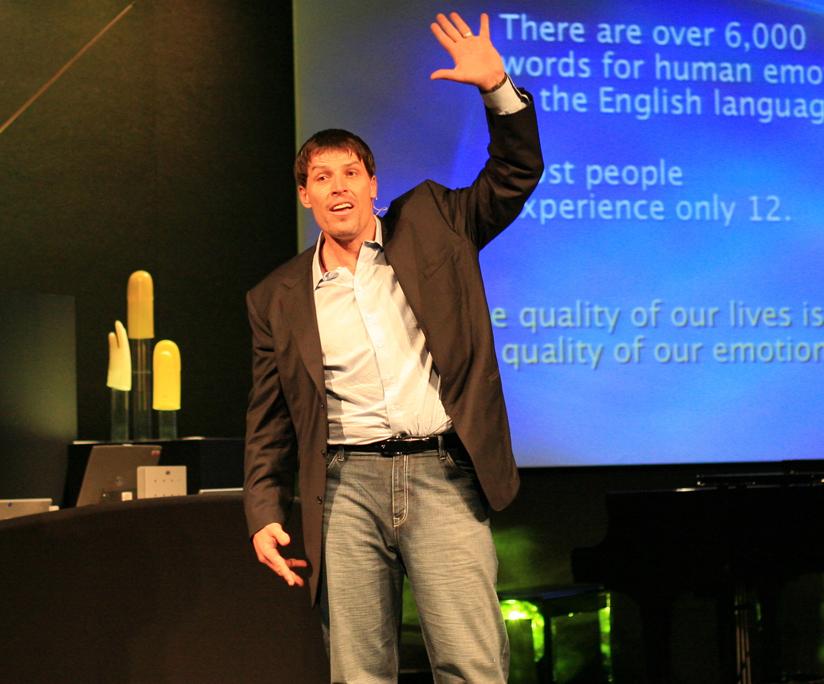One summer afternoon, I decided to distract myself from the overwhelming heat by looking through Ted Talks online, hoping to find something inspiring for my next blog. I finally came across a video of James Cameron, the mastermind behind “Avatar” and “Titanic.” Needless to say, his speech was what you would expect – brilliant and energizing.
I was ready to write, but in the back of my mind I began thinking that I should probably stop watching so many motivational speeches, particularly from mega-millionaires that the average person cannot relate to. It was beginning to feel unnatural following the advice of a man I had nothing in common with. Sure, he is awfully successful and knowledgeable about what it takes to reach the level of success that he did, but for once I just wanted to hear ordinary people talk about how happy and content they are – despite not having millions of dollars at their disposal.
The idea of success is advertised unrealistically. Multi–millionaires that present motivational speeches to average Joe audiences only make up 1 percent of the population in the United States. Yes, many of them revolutionized the world with their innovative ideas, and I admire their hard-won successes, but it has become somewhat redundant to hear about how these moguls have managed to monopolize the country.
I want to hear an everyman talk about how the he loves his job, enjoys financial stability without being a financial superhero, and manages to travel and balance his job with a personal life. I want to hear him say that he is successful not because he made millions, but because his is surrounded by a happy family and great friends. For me, somebody like this is more inspiring than a Donald Trump or Christy Walton.
I recall last year in my poetry class, when we had a guest speaker by the name of Don “Kingfisher” Campbell. He looked as if he had just stepped out of the ‘70s and into our classroom; the man was a character. He introduced himself, told us a bit about his life and work and began to read some of his poems. He had passed out a thin book containing his poems to the class, titled “Happy.” As he walked around the room, sharing with us his stories and words, I knew that this man was indeed happy. He may not have created wireless communication, he may not have owned a six-bedroom house overlooking the hills of Los Angeles, but he was happy with himself. He had made a life for himself through his ability to create powerful imagery and words that affect others. It makes complete sense to me that he decided to title his book the way he did.
Billionaires make up a very meager percent of the population, yet the majority of the American population is led to believe that people can only be happy if they have an overstuffed bank account. Hearing pep talks from the financially elite who worked hard to get to where they are is inspiring, but it’s unlikely that anybody in that audience is going to go home, have an epiphany of sorts, and become a “gazillionaire.” Ultimately, motivational speeches inspire nothing but false hope and hollow words.
When I think of success, I think of happiness – the two go hand in hand for me. But I want a realistic approach to success. I know I may not become the next Oprah Winfrey of national television or be named the sixth most powerful woman in the world, but I want to one day say that I traveled, met great people, and lived a fulfilling life regardless. We need people to set these examples – not billionaires, but people who can relate to the average American and say “I’m not swimming in cash, but I’m happy.”
We must look to the people around us for inspiration; people we work with every day, the ones we see walking into the office on a Tuesday morning with a cup of coffee in their hand and a slightly, disheveled look for having to wake up before the sun to beat the two hour commute.
We need to read about men and women who know how to succeed in life and not just in their careers or businesses. America has become so fixated on work and the accumulation of wealth that we seem to define one another by our vocational successes rather than our personal qualities and character.
We can set great goals for ourselves and we can dream big, but we must never measure our happiness solely in dollars or our achievements in our professions. In order to do this, we must start listening to the advice of great individuals around us, not the people we see on the news every week. We must not live to work but work to live. Only then will we have truly succeeded.

